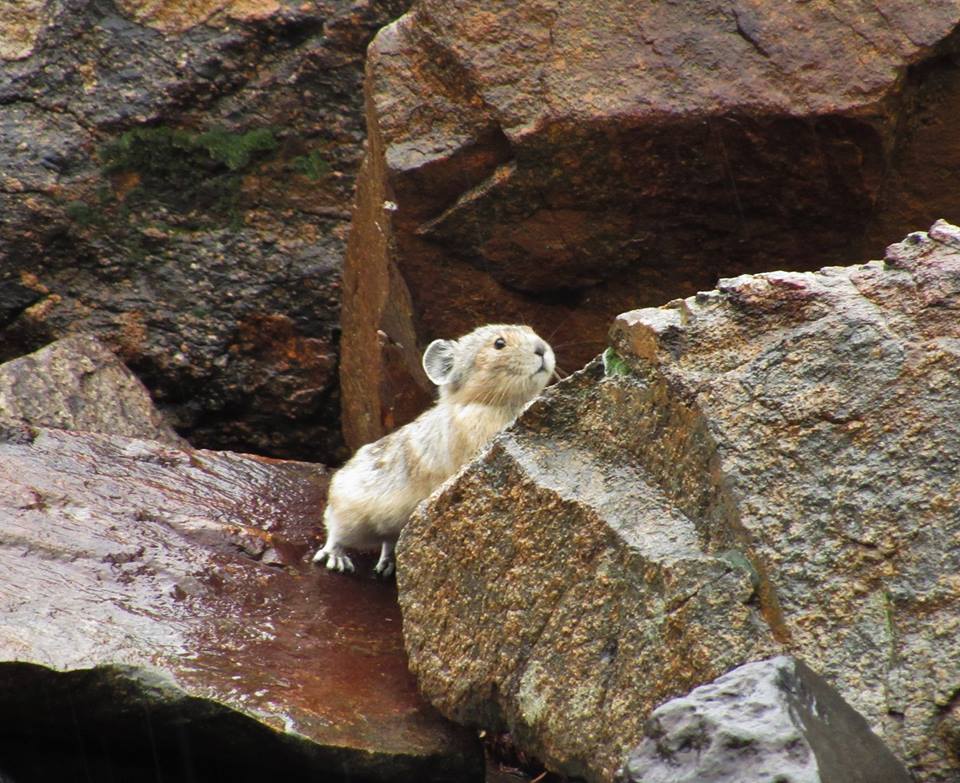By Gabrielle Vermeire an incredible Rocky Mountain Wild Intern
As an intern at Rocky Mountain Wild, I expected that I would be filling in some odd jobs. Like most internships, my job description ends with those familiar words, “and other duties as assigned.” Luckily, one of those other duties is the opportunity to go into high-elevation alpine environments to help Megan Mueller, our Senior Conservation Biologist, with her research on pikas.
Pikas, for the uninitiated (which is most people who don’t often venture above the tree line), are small mammals that almost exclusively inhabit high-altitude alpine ecosystems. Closely related to rabbits, they are unique in their highly-specialized adaptations to alpine environments. Since they don’t hibernate in the coldest winter months, pikas rely on high metabolisms, thick fur, and behavioral adaptations to survive in below-freezing temperatures. These adaptations, however, may also make pikas especially sensitive to the warming effects of climate change.
In order to determine if pikas are indeed threatened by climate change or are resilient enough to adapt, the Front Range Pika Project was formed. Rocky Mountain Wild, in conjunction with the Denver Zoo, University of Colorado researchers, and the Colorado Division of Wildlife founded the program. It relies almost entirely on citizen science volunteers to collect data on pikas and their habitat.
As a member of the Front Range Pika team, I will be spending the next few weeks conducting pika counts, setting up research sites, and collecting fresh pika scat. The scat will be used to determine a pika’s cortisol levels, which can tell us how much stress it is under. Increased stress trends might indicate a negative response to climate change.
Thanks to Ethnotek, I will be carrying my field supplies (and pika scat) in style.

If you would like to get involved and become a citizen science volunteer yourself, visit www.pikapartners.org.
You can also learn more about my internship funded by the 100 Women for the Wild program at Rocky Mountain Wild at http://rockymountainwild.org/100_wfw.

